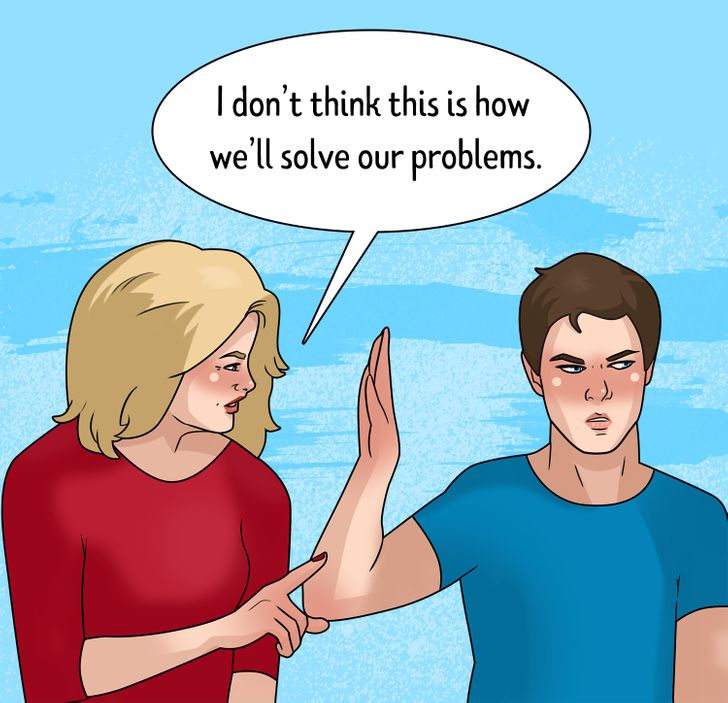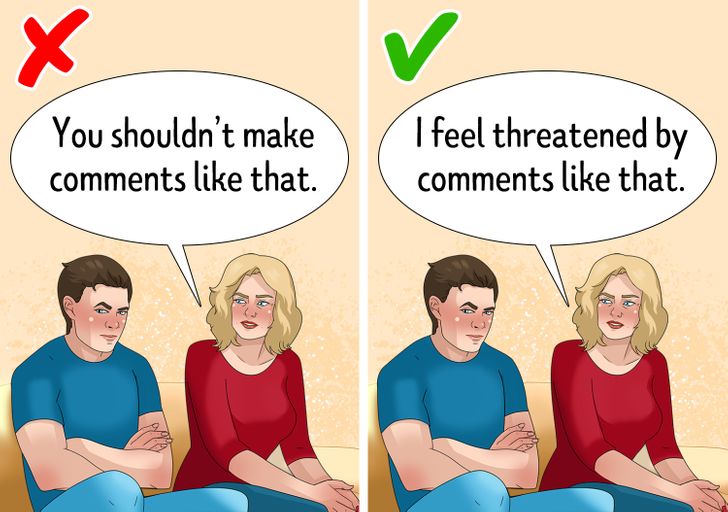How to Deal With Difficult Family Members

Although it can be very challenging, we need to learn how to deal with our difficult family members if we want to live our lives in peace. 5-Minute Crafts has listed a few things you can do to make your life and the life of the difficult person better and happier.
1. Don’t expect them to change.

Accept the person for who they are. Know that sometimes your efforts to try to make them a better person won’t be rewarded. Accept that they are unable to change, at least at that certain point in time. Just assume this is their behavior and temper your expectations.
2. Be direct and assertive.

Whenever you talk to them, stay focused and be direct and assertive in everything you are saying. Make sure it is very clear. This will help you avoid getting into a fight, where both of you will become defensive.
3. Encourage difficult people to express themselves.

Let them express their point of view without interfering. Try to remain neutral to what they say. Just listen and encourage them to speak. Try to arrive at a place of mutual respect. Ask them why they feel judged or why they feel they’re misunderstood.
4. Watch for trigger topics.

During your conversations or even their interactions with others, try to observe and figure out what topics represent points of disagreement between you and this person. Know the topics and be aware when they are brought up. Prepare yourself beforehand for when you’ll be talking about these things so you can be direct and non-confrontational.
5. Know what topics are off-limits and how to deal with them.

Know what topics are completely off-limits and that will 100% cause a fight between the 2 of you. When you or the other person starts talking about these topics, try to end the conversation right away. Say something like: “I will not discuss this topic. If you’d like to continue, I will have to leave,” so you let them know that you won’t participate in these discussions.
6. Set boundaries.

Although you need to be respectful and understanding of the situation, be sure to set some boundaries. These boundaries should be set during a calm moment and never during a fight. Make sure you do it in a clear and simple language, said directly to the person in question, and repeated until they are heard.
7. Switch perspectives.

In a calm moment and when you’re by yourself, try switching perspectives. You will not only start to understand the other person better, but you will also stop taking things so personally. Know that the other person had difficult experiences and that they are just expressing it in their actions. This will help you to create a greater connection with that person.
8. Focus on your own well-being first.

While you’re trying to be as good, respectful, and attentive as you can to make the other person happier, make sure to put your well-being first. Take some time for yourself and surround yourself with people you get along with and who can support you and make you feel happy.
9. Use “I” statements.

Using “I” statements takes the blame off the person you are talking to. It will make the person less defensive. Use phrases like, “I feel threatened by comments like that.” Starting the phrase with “I” gives the feeling that what you’re talking about is more about you and less about them.